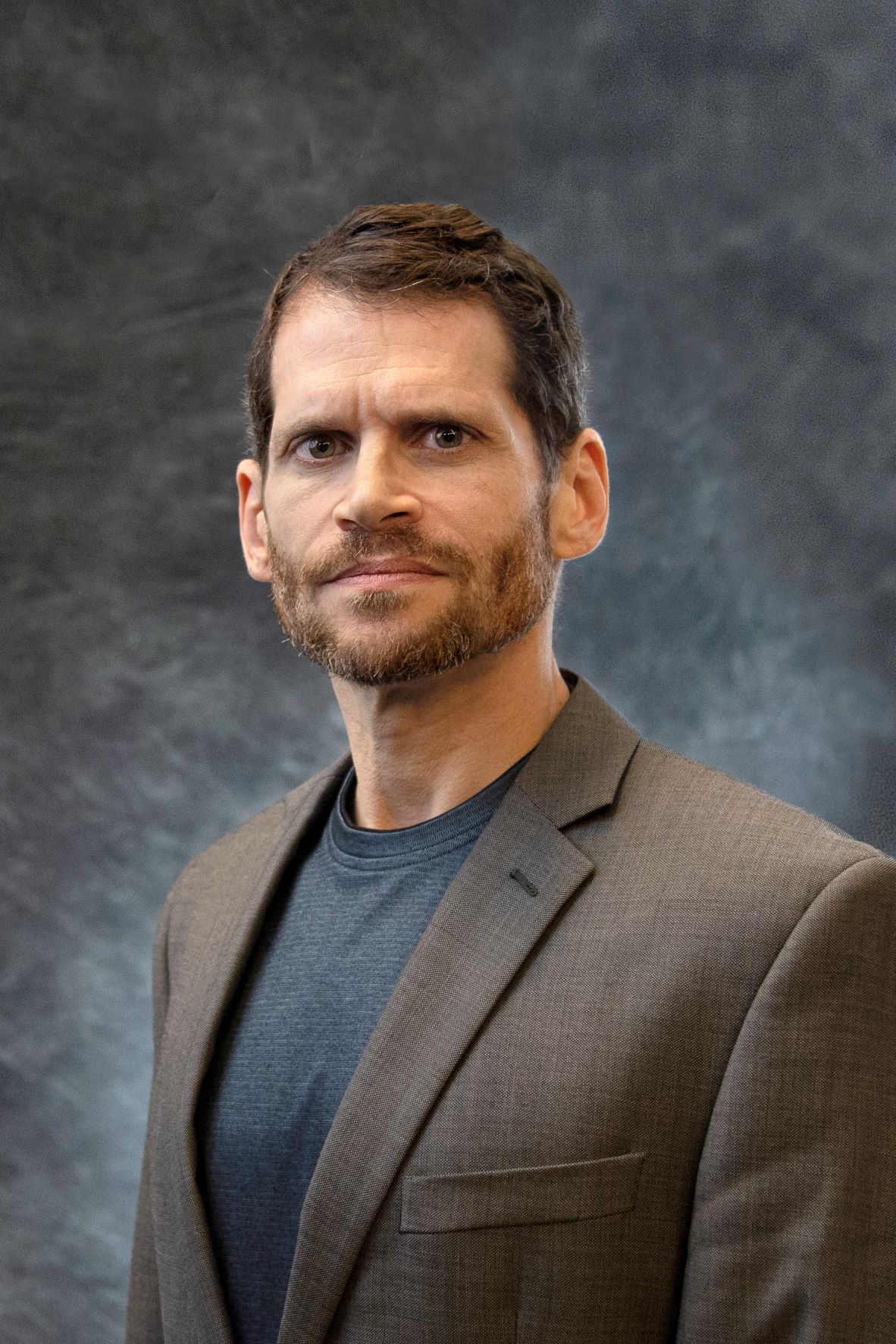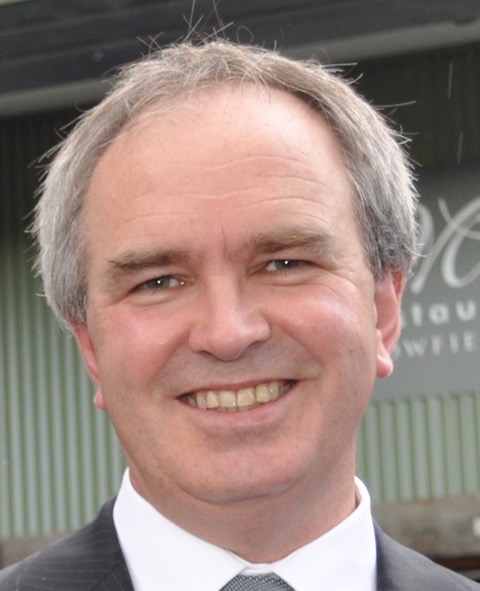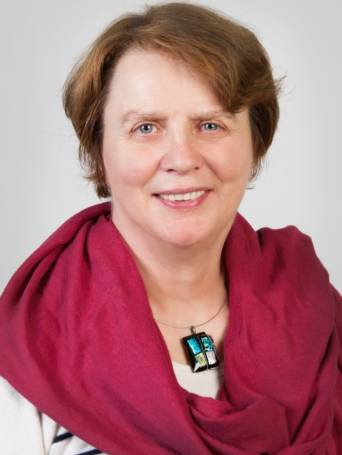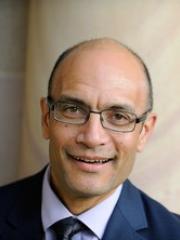Invited Guests and Speakers
We are pleased to have a line-up of world leading experts in data infrastructure, artificial intelligence, advanced analytics, and privacy. The following guests will be giving talks, workshops, or leading discussions on some important questions around New Zealand’s use of data.
Professor Julia Lane
Professor Julia Lane is a Professor at the NYU Wagner Graduate School of Public Service. She was a senior advisor in the Office of the Federal CIO at the White House, supporting the implementation of the Federal Data Strategy. She cofounded the Coleridge Initiative, whose goal is to use data to transform the way governments access and use data for the social good through training programs, research projects and a secure data facility.
Julia also co-founded the Institute for Research on Innovation and Science (IRIS) at the University of Michigan, the Longitudinal Employer-Household Dynamics (LEHD) Program at the US Census Bureau, and the Data Enclave at NORC at the University of Chicago.
Julia most recently served on the Advisory Committee on Data for Evidence Building and the National AI Research Resources Task Force. Julia has held positions at the National Science Foundation, the American Institutes for Research, The Urban Institute, The World Bank, American University and NORC at the University at Chicago.
Dr Nancy Potok
Dr. Nancy Potok Is the CEO of NAPx Consulting and a director of the Data Foundation. She served as the Chief Statistician of the United States in the Executive Office of the President until January 2020, during which time she served on the US Commission on Evidence-Based Policy Making and co-chair of the Federal Data Strategy. She has over 36 years of public service experience, including serving as Deputy Director and Chief Operating Officer of the U.S. Census Bureau; Deputy Under Secretary for Economic Affairs at the US Department of Commerce; Senior Vice President for Economic, Labor, and Population Studies at NORC at the University of Chicago; and Chief Operating Officer at a private sector data analytics and organizational transformation firm. She chairs the Board of Trustees at the Institute of Pure and Applied Mathematics at the University of California Los Angeles (UCLA) and is on the Boards of the School of Computing and Information at the University of Pittsburgh and at the National Institute of Statistical Science. She also edits a column for the Harvard Data Science Review on data and public policy.
Professor Janeen Baxter
Professor Janeen Baxter is Director of the Australian Research Council Centre of Excellence for Children and Families over the Life Course in the Institute for Social Science Research. Janeen has research interests in social disadvantage, gender inequality, family dynamics, life course and longitudinal studies and has published widely in these areas. She is known for her leadership in developing life course and longitudinal studies through Australia’s first national longitudinal study, Negotiating the Life Course (NLC). Janeen’s research impact is reflected in her influence on data investments and policy decisions by the Australian Government. She has been a member and Chair of the College of Experts for the Australian Research Council and is currently an elected fellow of the Academy of Social Sciences in Australia. She is a member of several Australian and overseas government advisory committees and research advisory boards, including the Expert Advisory Board for the Singapore Longitudinal Early Development Study and 100 Families WA. Janeen is also a member of the Committee for Economic Development of Australia’s Council on Economic Policy.
Bill Simpson-Young
Bill Simpson-Young is a founder and the CEO of Gradient Institute, an independent, nonprofit research institute that works to build ethics, accountability and transparency into artificial intelligence (AI) systems: developing new algorithms, training organisations operating AI systems and providing technical guidance for AI policy development. Bill has spent most of his career in R&D leadership. He has worked for global technology companies (Canon and Unisys), in government-funded research institutions (CSIRO and NICTA) and worked in research and teaching in university, leading R&D teams from technological research through to deployed systems in use. He was previously a member of CSIRO’s Data61 Executive Team and Director of Engineering & Design, leading the development of new software technologies and products including in data privacy, spatial technologies, logic systems and machine learning.
Professor Chris Dibben
Professor Chris Dibben is Director of the Scottish Centre for Administrative Data Research (SCADR), and is Chair of Geography, University of Edinburgh. He is co-lead for the ADR Scotland partnership, and Director of the Longitudinal Studies Centre Scotland. Previously a co-chair of the International Population Linked Data Network, Chris is currently a member of the ADR UK Leadership Committee. He is part of the Scottish Government’s COVID-19 data and intelligence network

Professor Matt Snipp
Professor Matt Snipp is the Burnet C. and Mildred Finley Wohlford Professor of Humanities and Sciences in the Department of Sociology at Stanford University. He is also the Director for the Institute for Research in the Social Science’s Secure Data Center and formerly directed Stanford’s Center for the Comparative Study of Race and Ethnicity (CCSRE). He has been a Research Fellow at the U.S. Bureau of the Census and a Fellow at the Center for Advanced Study in the Behavioral Sciences. He served on the Census Bureau’s Racial and Ethnic Advisory Committee and several advisory working groups evaluating the 2000 census, three National Academy of Science panels focused on the 2010 and 2020 censuses. He was previously on the Board of Scientific Counselors for the Centers for Disease Control and the National Center for Health Statistics as well as is currently serving on the National Institute of Child Health and Development’s Population Science Subcommittee.
Professor Graham Williams
Professor Graham Williams is Chief Scientist, Software Innovation Institute, the Australian National University. Graham leads teams of developers and researchers delivering innovative and cutting-edge Data Science solutions utilising AI and Machine Learning. He develops new approaches to privacy with individual control and ownership of data through technology that is freely available for public good. Graham has extensive involvement in various open-source software communities over many years and has published books in data science, together with widely used open-source data science software. He was previously Director of Data Science at Microsoft, mentoring developers and researchers working across different industries. As an executive with the Australian Taxation Office and through the Whole of Government Data Analytics Centre of Excellence he guided government departments in setting up their Data Science capabilities. At the Commonwealth Scientific and Industrial Research Organisation (CSIRO) in Australia he pioneered the use of Data Mining research in industry.

Adam Leonard
Adam Leonard is the Chief Analytics Officer & Director of Information Innovation & Insight at the Texas Workforce Commission. Adam is a recognised leader in the use of data to improve governmental program effectiveness, efficiency, and accountability in the United States with over two decades experience working at the Texas Workforce Commission. He works in partnership with internal and external Texas stakeholders as well as other states and federal partners to advance the state of the art in the use of data to support decision-making, strategic planning, and program integrity. The Information Innovation & Insight division of TWC is responsible for helping TWC, its partners, and other economic-education-workforce development stakeholders leverage data to better meet the needs of employers, individuals, families, and communities in Texas. The division is also responsible for facilitating the agency’s business transformation and process improvement efforts.
Professor Peter Christen
Professor (emeritus) Peter Christen is a Professor in the School of Computing at the Australian National University. His research interests are in record linkage and data mining, with a focus on privacy, scalability, and machine learning aspects of record linkage. He has published nearly 200 articles in these areas, including the two books Data Matching in 2012 and Linking Sensitive Data (co-authored with Thilina Ranbaduge and Rainer Schnell) in 2020. Peter is currently involved with developing novel population data linkage methods with large databases as part of the Scottish Historic Population Platform using data records produced from the Digitising Scotland research project.
Professor Mark Western
Mark Western is Professor of Sociology at the University of Queensland and a Fellow of the Academy of Social Sciences in Australia. From 2009 to March 2022 he was Founding Director of the Institute for Social Science Research, Australia’s leading social science research institute. He has previously worked at the Australian National University and the University of Tasmania, and held visiting appointments at the University of Wisconsin-Madison, the University of Manchester, and the Institute of Education, London. Mark is an International Fellow of the Centre for the Study of Poverty and Inequality at Stanford University, a former Chief Investigator on the ARC Centre of Excellence for Children and Families Over the Life course and the ARC Centre of Excellence in Policing and Security. He is a member of the National Research Infrastructure Advisory Group which provides independent strategic and long-term advice to the Australian Government on national research infrastructure.

Professor Tony Hosking
Professor Tony Hosking is Director of the School of Computing at the Australian National University. His research interests are in programming languages and database systems, with a focus on reliability, performance, and trustworthiness. He has previously worked at Purdue University—West Lafayette, NICTA, and Data61, and is Honorary Professor at the University of Massachusetts—Amherst. He is a Distinguished Scientist of the Association for Computing Machinery, elected Member of Association Internationale pour les Technologies Objets, and Member of the Institute for Electrical and Electronics Engineers. He is co-author of the primary reference work on automatic memory management: The Garbage Collection Handbook. He also has extensive consulting experience as a testifying intellectual property expert to US District Courts on technologies for data management and data storage.

Glenn Archer
Mr Archer is a leading industry and government technology expert who is recognised nationally and internationally for his deep expertise in digital government. He has formerly held a range of senior technology and management roles in both the public and private sector, notably as the Australian Government Chief Information Officer, and head of the Australian Government Information Management Office, and also Research Vice President (Government) at Gartner.





